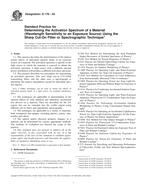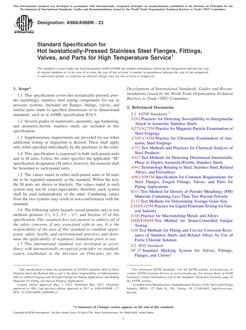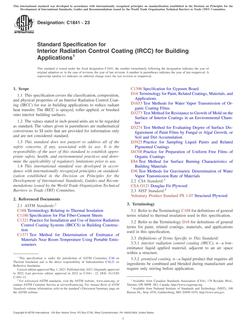
ASTM G178-03
- Comments Off on ASTM G178-03
- ASTM
1.1 This practice describes the determination of the relative actinic effects of individual spectral bands of an exposure source on a material. The activation spectrum is specific to the light source to which the material is exposed to obtain the activation spectrum. A light source with a different spectral power distribution will produce a different activation spectrum.
1.2 This practice describes two procedures for determining an activation spectrum. One uses sharp cut-on UV/visible transmitting filters and the other uses a spectrograph to determine the relative degradation caused by individual spectral regions.
Note 1-Other techniques can be used to isolate the effects of individual spectral bands of a light source, for example, interference filters.
1.3 The techniques are applicable to determination of the spectral effects of solar radiation and laboratory accelerated test devices on a material. They are described for the UV region, but can be extended into the visible region using different cut-on filters and appropriate spectrographs.
1.4 The techniques are applicable to a variety of materials, both transparent and opaque, including plastics, paints, inks, textiles and others.
1.5 The optical and/or physical property changes in a material can be determined by various appropriate methods. The methods of evaluation are beyond the scope of this practice.
1.6 This standard does not purport to address all of the safety concerns, if any, associated with its use. It is the responsibility of the user of this standard to establish appropriate safety and health practices and determine the applicability of regulatory limitations prior to use.
Note 2-There is no ISO standard that is equivalent to this standard.
Product Details
- Published:
- 07/10/2003
- Number of Pages:
- 12
- File Size:
- 1 file , 130 KB



